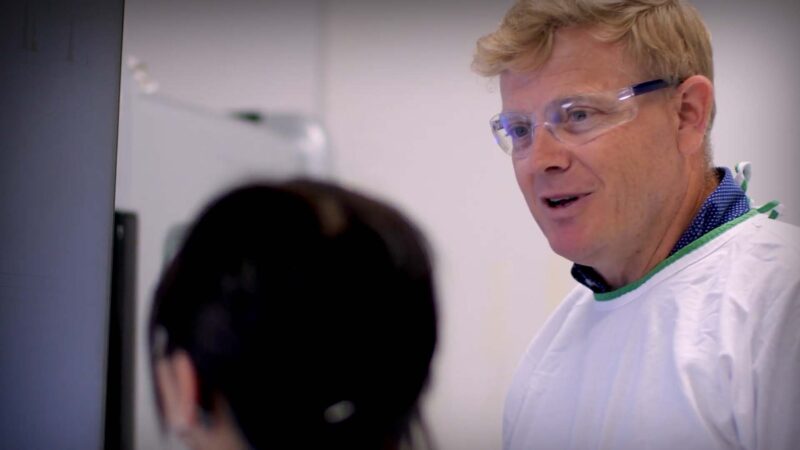NOVEL FORMS OF BRAIN STIMULATION & PSYCHEDELIC ASSISTED PSYCHOTHERAPY
With
Professor Paul Fitzgerald,
Director, School of Medicine and Psychology,
Australian National University, Canberra, Australia &
Principal Investigator, Paratus Clinical, Australia
RESEARCHER PROFILE
Filmed in Canberra, Australia | November 2025
Professor Paul Fitzgerald is the Head of the School of Medicine and Psychology at the Australian National University. He is an academic psychiatrist with a MBBS degree, Masters of Psychological Medicine and research PhD.
He has conducted an extensive range of experimental studies and clinical trials, focused on the development of novel treatment options for patients with mental health conditions such as depression, schizophrenia, obsessive compulsive disorder, PTSD, autism and Alzheimer’s disease.
Professor Fitzgerald has a special interest in repetitive transcranial magnetic stimulation (rTMS) and other novel treatments using forms of non-invasive brain stimulation. He has had continual NHMRC grant support for 20 years and over $10 million in research support in the last 5 years. He has published several books, over 550 journal articles and been cited over 30,000 times.
He has established multiple clinical rTMS services, founded several device and clinical service companies and led a national application to MSAC in the Federal Department of Health which resulted, in 2021, in Medicare funding ($280 million in year 1) for rTMS therapy for patients with depression.
Professor Fitzgerald currently leads an innovative school at the ANU which combines both the ANU Medical Program and former Research School of Psychology focussed on education and research approaches integrating perspectives across mind, body and culture.
Source: Supplied
You Might also like
-
Relationship between mental illness and mental wellbeing
Since 2015, Dr Matthew Iasiello has been working on the development and dissemination of mental wellbeing interventions across the Australian community at the South Australian Health and Medical Research Institute (SAHMRI). His PhD research was designed specifically to strengthen the translational work conducted by SAHMRI, and to solve problems that represented gaps in the literature that were arising when delivering mental wellbeing interventions into the community. The impact and relevance of Dr Iasiello’s work has been demonstrated with invited presentations at international academic conferences, and multiple media stories with significant online engagements.
-
Biomarkers for early sepsis detection
Dr Gabrielle Briggs is a biomedical scientist dedicated to finding smarter, faster ways to diagnose and treat life threatening complications in critically ill patients. Dr Briggs established a research laboratory embedded within the John Hunter Hospital – one of the busiest major trauma centres in NSW. Dr Briggs works alongside surgeons, intensivists, and pathologists to turn complex clinical problems into practical research solutions. Her work spans two major programs: developing a rapid diagnostic test to detect bacterial infections in blood before sepsis takes hold, and exploring mitochondrial transplantation as a novel therapy to rescue injured tissues after trauma and ischaemia.
-
Next generation nanomedicine and radiopharmaceuticals to treat cancer
Finding better ways of treating cancer, aside from finding a cure, aim to provide a better quality of life for those who suffer from it.
Professor Thurecht’s work focuses on nanomedicine and spans across the Australian Institute for Bioengineering and Nanotechnology and the Centre for Advanced Imaging, at the University of Queensland in Australia.

 https://orcid.org/0000-0003-4217-8096
https://orcid.org/0000-0003-4217-8096


